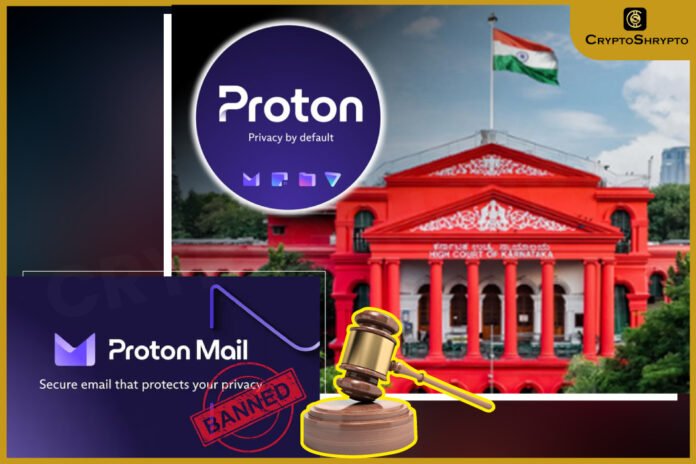In a landmark decision, the Karnataka High Court has directed the central government to take immediate steps to block Proton Mail, a Switzerland-based encrypted email service, within India. The order was issued on April 29, 2025, by Justice M Nagaprasanna, invoking Section 69A of the Information Technology Act, 2000, and relevant IT Rules, citing the platform’s alleged misuse in cybercrime incidents.
The directive comes in response to a petition filed by M Moser Design Associates India Pvt Ltd, a Bengaluru-based firm. The company alleged that anonymous Proton Mail accounts were used to send obscene, AI-generated deepfake images to its employees, clients, and competitors. The firm claimed these acts caused serious reputational harm and psychological trauma, and that Proton Mail’s encryption features hindered police investigations.
The court also ordered the immediate blocking of URLs linked to the objectionable content and directed authorities to act promptly to prevent further dissemination. It stressed that the end-to-end encryption and Proton Mail’s refusal to share sender information posed a significant challenge for law enforcement and risked public safety.
Proton Mail, operated from Switzerland, has consistently maintained strict privacy policies and does not store user IP addresses. However, this stance has previously led to tensions with Indian authorities. In 2024, Tamil Nadu police sought a ban on the service after it was allegedly used to send hoax bomb threats to schools, but no action was taken at that time.
Currently, Proton Mail remains accessible in India. The implementation of the High Court’s order is pending action from the Union Ministry of Electronics and Information Technology (MeitY). Legal experts suggest the move could set a precedent for handling foreign digital services that resist cooperation with local law enforcement.
While some privacy advocates warn of government overreach, others support the measure as necessary to curb digital crimes. The case underscores ongoing global challenges around balancing digital privacy, national security, and legal jurisdiction in an increasingly connected world.




